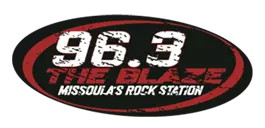35 Years Ago: Henry Rollins Joins Black Flag on Hardcore Landmark ‘Damaged’
Hardcore music, as we know it, was more-or-less birthed on Dec. 5, 1981, because that was the date when Black Flag unfurled the style's definitive cornerstone album in Damaged. It was their first full-length record after a trio of EPs that began with 1979's Nervous Breakdown.
No other album played a bigger role in emancipating hardcore from punk rock. Damaged drew the line that separated music dedicated to upholding its visceral, aggressive qualities -- an outgrowth of its roots in bands like the Stooges and Ramones -- from its artsier (Talking Heads), adventurous (Television) and poppy (Blondie) exponents.
And maybe no one was more surprised about these life-changing events than new frontman Henry Rollins, who'd been unexpectedly promoted from Black Flag's biggest fan to their lead singer in the Spring of 1981. One day, Rollins was jumping on stage with the band at a New York City gig to sing his favorite song, "Clocked In," and a few days later he was back working in a Washington D.C. ice cream shop when Black Flag's then-vocalist and guitarist Dez Cadenacalled offering him an audition.
As Rollins described it in his book Get in the Van, "We played all of their material. What words I knew I sang. The ones I didn't, I made up. At the end we all kind of looked at each other. The band went out in back to talk it over and I sat on the floor of the practice room and waited it out. They came back in and Chuck [Dukowski, bass] said, 'Well?' I said, 'Well what?' 'Are you going to join or not?' I was in. That's pretty much how I joined Black Flag."
Within days, Rollins had packed up his life in D.C. and joined the band as an observer while they toured their way back home to Los Angeles, where work on Damaged soon started. Unicorn Studios, in Santa Monica, doubled as the band's living space during the sessions, and was owned by their distributors, Unicorn Records.
Writing once again in Get in the Van, Rollins remembered, "The guys did the songs without me and I did the vocals later on. It was amazing to watch [guitarist Greg] Ginn in the studio. He was relentless -- so much energy. He would tape the headphones to his head during overdubs so they wouldn't fly off. [Drummer] Robo always wore these bracelets on his left wrist and the drum mics would pick them up. It became part of the sound. You can hear it on the record."
And the record was literally unprecedented in its relentlessness. Songs like "Spray Paint" (barely 30 seconds of anti-social fury), "Depression" and "Padded Cell" almost physically grabbed listeners by the scruff for a slam-dancing, stage-diving baptism by fire in the mosh pit of their own bedrooms.
But its lyrics countered this wanton savagery with substantial messages -- either about personal empowerment ("Rise Above"), the straight-edge ethos ("Thirsty and Miserable"), police persecution ("Police Story"), condemning ruthless consumerism ("Gimmie Gimmie Gimmie") or satirizing jock behavior ("Six Pack, "TV Party"). Young listeners, unsure about their future place in Reagan's America, could relate and even find some communal solace in the helpless rage of "Damaged II" or "Life of Pain."
As for his own performance, Rollins wrote "Chuck and Greg coached me on the vocals and I needed all the help I could get. I would sing as hard as I could every time. I didn't know anything about pacing myself. It must have been funny to see me work hard instead of smart. We did the record fairly quickly [but] I remember the vocals for 'TV Party' taking a long time because there were so many parts to do."
And the challenges weren't over once recording finally wrapped. In his book Rock and the Pop Narcotic, band associate Joe Carducci claimed that Unicorn Records was so deeply in debt to MCA that the major label's president, Al Bergamo, refused to distribute the already printed copies of Damaged. Publicly, however, he deemed it to be "anti-parent" as his reason. Black Flag's only resort was to personally head down to MCA's pressing plant and cover MCA's logo on the album jacket with stickers, cleverly proclaiming, "As a parent, I found it an anti-parent record."
Damaged finally made it into record stores and gave Black Flag the ammunition to propagate their hardcore mission for years to come, as Rollins recalled in Get in the Van, "Soon after the recording was done we set out on the first tour with me singing. It was amazing to me. A few months before, I was working behind the counter at a straight job and now I was hitting the road with the baddest band in the land."
But the next few years would also bring continued hardship, as Rollins continued: "[Damaged] was the best time I ever had doing a Black Flag album. The rest were hard to get through for a number of reasons. Financial stress was a 24-hour a day reality for the band. We were up against it for the entire time the band was together. There never was any 'sellout' or any 'rock star' bulls___."
Indeed, at the end of the day, Black Flag's most important legacy may be pioneering most of the fundamental D.I.Y. practices by which hardcore bands could book their own tours, promote their own shows, and even release their own music (in this case, through the band's own SST imprint) without major label support. But it's doubtful whether any of this could have been possible without the genre-defining bedrock set down by the paradigm-shifting music on Damaged.
The 31 Most Disturbing (Non-Heavy Metal) Album Covers Ever [NSFW]






